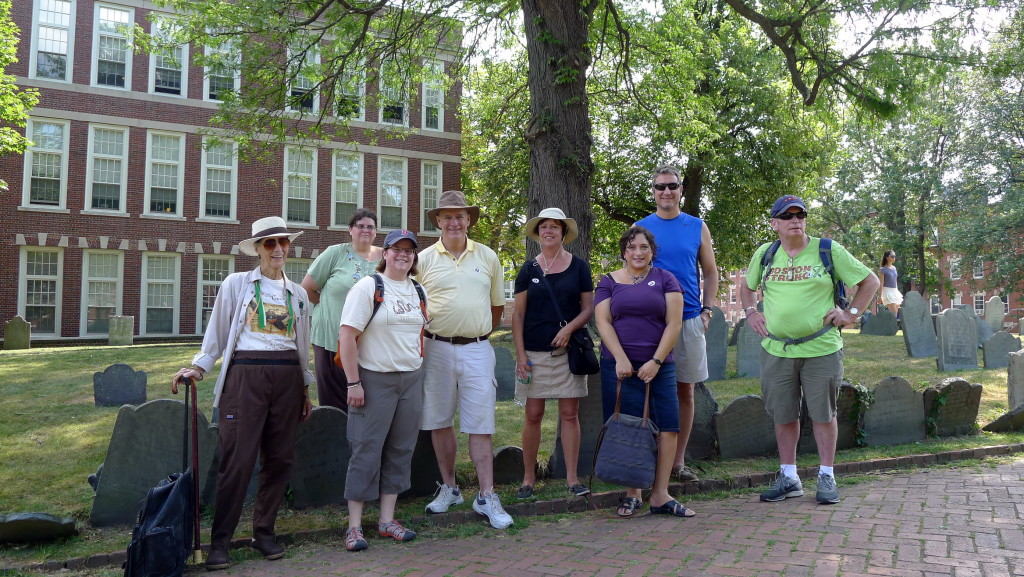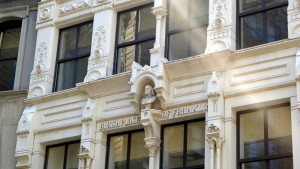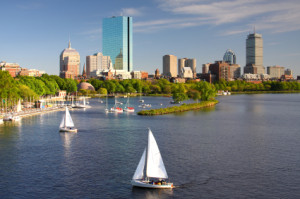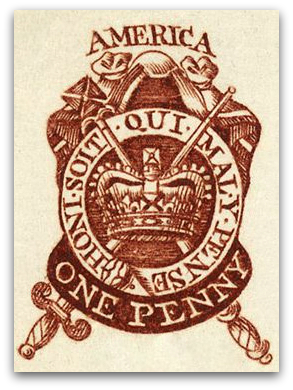 The sestercentennial (250th anniversary) of the first Boston Stamp Act riot took place on August 14, 2015. I commemorated the event by releasing a bonus episode of Ben Franklin's World about the Stamp Act and the Boston riots and by hosting the first ever Ben Franklin's World Listener Meet-up.
The meet-up consisted of a two-hour walking tour of Boston that focused on the Stamp Act riots and the role Boston played in the American Revolution.
The sestercentennial (250th anniversary) of the first Boston Stamp Act riot took place on August 14, 2015. I commemorated the event by releasing a bonus episode of Ben Franklin's World about the Stamp Act and the Boston riots and by hosting the first ever Ben Franklin's World Listener Meet-up.
The meet-up consisted of a two-hour walking tour of Boston that focused on the Stamp Act riots and the role Boston played in the American Revolution.
I wrote the tour and offered it through Boston By Foot, an organization of volunteers who lead history and architecture walking tours of Boston.
Thirty-eight people took the tour, about twenty people heard about it through the podcast.
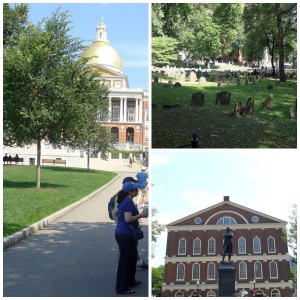 The tour began in front of the Massachusetts State House and from there stopped by the Granary Burying Ground (we had to stop and say "hello" to John Hancock, Samuel Adams, James Otis, Paul Revere, and Robert Treat Paine), King's Chapel, Old South Meeting House, the building that marks the birthplace of Benjamin Franklin, the Old State House and Boston Massacre Site, Faneuil Hall, the Blackstone Block (the only street in Boston that resembles a colonial Boston street), Paul Revere House, the Thomas Hutchinson house site, Old North Church, and Copp's Hill Burying Ground (where we looked at and discussed Bunker Hill).
The tour began in front of the Massachusetts State House and from there stopped by the Granary Burying Ground (we had to stop and say "hello" to John Hancock, Samuel Adams, James Otis, Paul Revere, and Robert Treat Paine), King's Chapel, Old South Meeting House, the building that marks the birthplace of Benjamin Franklin, the Old State House and Boston Massacre Site, Faneuil Hall, the Blackstone Block (the only street in Boston that resembles a colonial Boston street), Paul Revere House, the Thomas Hutchinson house site, Old North Church, and Copp's Hill Burying Ground (where we looked at and discussed Bunker Hill).
We had hot, muggy weather, but we enjoyed the day. After the tour six of us repaired to a pizzeria in the North End and had lunch.
Most of the listeners who came for the meet-up hailed from New England or New York. One listener dove up from Baltimore and used the meet-up as an excuse to visit Boston, the We Are One exhibit at the Boston Public Library, Boston's Haymarket, and Longfellow's Wayside Inn in Sudbury, Massachusetts--all locations I have featured on Ben Franklin's World.
One of the most rewarding experiences of podcasting has been connecting with history lovers like the ones who came on my tour. This past spring and summer I have received tweets and e-mails from listeners telling me that they have visited the Library Company of Philadelphia, Schoharie Crossing State Historic Site, the Wayside Inn, and Boston as a result of hearing about these places on Ben Franklin's World. My listeners are also buying books and attending lectures given by guest historians.
Combining history and new media technology like podcasts, blogs, Twitter, and Facebook work. They help historians reach new audiences and help new audiences connect with us and our work.
Share Your Story
What are you doing that is helping you connect new audiences to your historical work?

